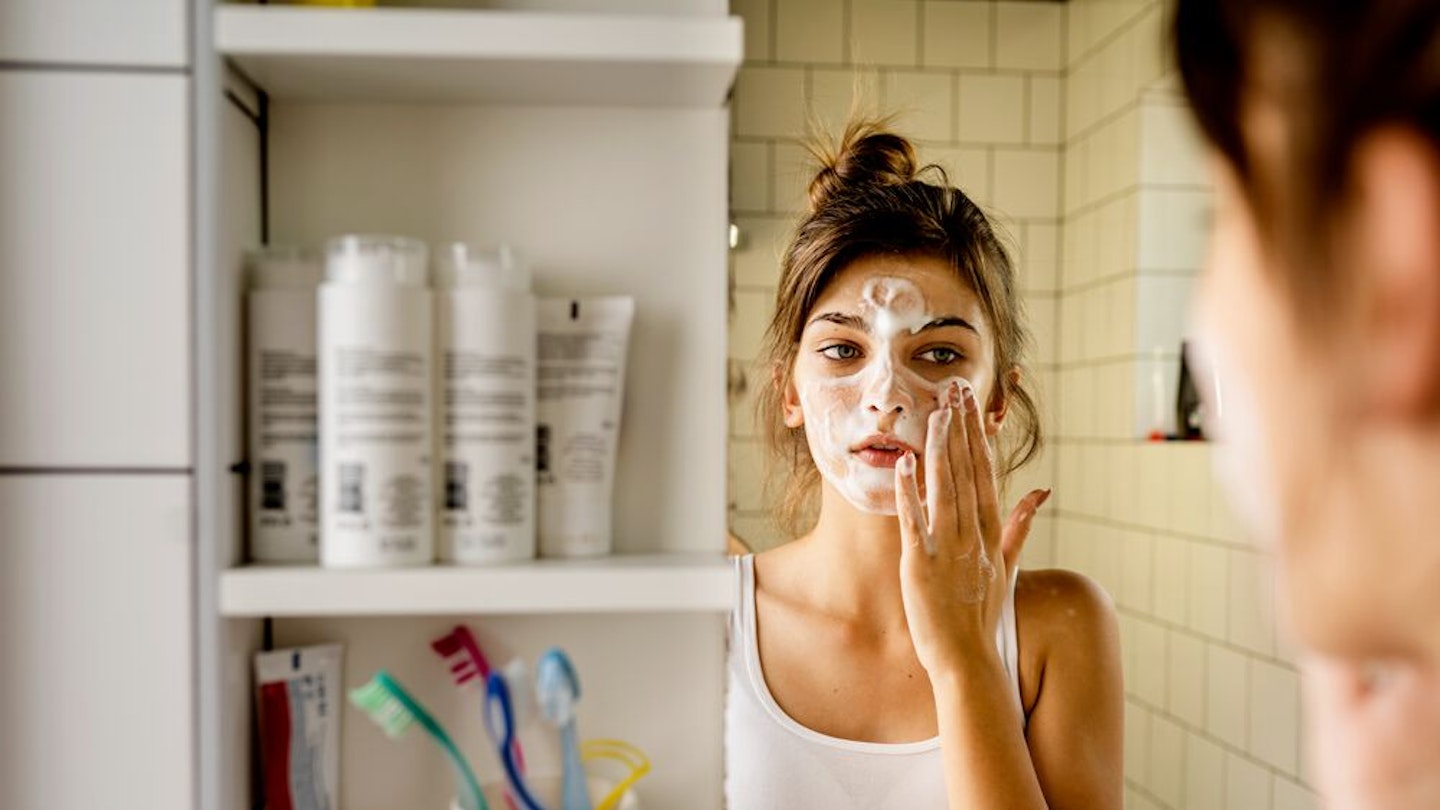Can I see your ID? In bars, cinemas and supermarkets, showing your driver’s licence is commonplace for the under 25s – but those who fall into camp Gen Z and Gen Alpha might have to get used to bringing ID to the beauty aisle, too.
Providing proof of age to buy a serum? So far, so nanny state. But for Josefin Landgård, founder of CBD skincare brand Mantle, it’s a necessary step against the ‘Sephora kids’ phenomenon and the rise of extensive and expensive skincare routines. ‘We find it problematic that many young people are searching for, buying and using strong active products,’ she says.
‘My 11-year-old son has been asking for Drunk Elephant serums and moisturisers,’ says Nottingham-based jewellery consultant Eleanor Pereira. A Drunk Elephant face serum that promises to ‘target multiple signs of damage’ sells for £71.
Ask any dermatologist what a skincare routine for teens and tweens looks like and the advice is simple. ‘A gentle cleanser, a lightweight moisturiser and sunscreen. That’s really all they need,’ says GP and dermatology expert Dr Sonia Khorana.
If good habits are formed at an early age, surely that applies to skincare, too? Not exactly. It’s unnecessary, and even damaging, for Gen Alpha to replicate the multi- ingredient routines they see on social media, unless prescribed by a doctor to treat a specific skin condition. ‘Products containing ingredients such as retinol, vitamin C and exfoliating acids are formulated for mature skin,’ says Khorana. ‘They risk damaging their skin barrier, developing contact dermatitis, irritation and skin issues if they continue to use ingredients formulated for mature skin.’
Curbing the use of ingredients that could do more harm than good on youthful complexions is the reason that Mantle has become one of the first skincare brands to introduce an age limit on its website. Visitors to the site now have to confirm that they are over 18 before buying any products that contain active ingredients.
Landgård believes that, ‘An age restriction is a clear and effective directive that is a way to guide customers.’ The move has already sparked others to follow suit, with major beauty players introducing similar measures. Leading Swedish pharmacy chain Apotek Hjärtat has stopped selling ‘advanced skincare’ products – those with AHA and BHA acids, vitamins A and C and enzyme peeling – to customers under the age of 15 without parental consent.
Is an age restriction helpful for parents? ‘I just want some clear guidance on what skincare my kids should be using,’ says Pereira. ‘I see multi-step routines on TikTok and wonder if they need that, too.’
While Khorana welcomes the introduction of age restrictions on certain ingredients she agrees that better advice, education and an open conversation is the key to building good skincare habits.
Perhaps it’s time the skincare glossary was updated. R isn’t for retinol, it stands for R-rated.

